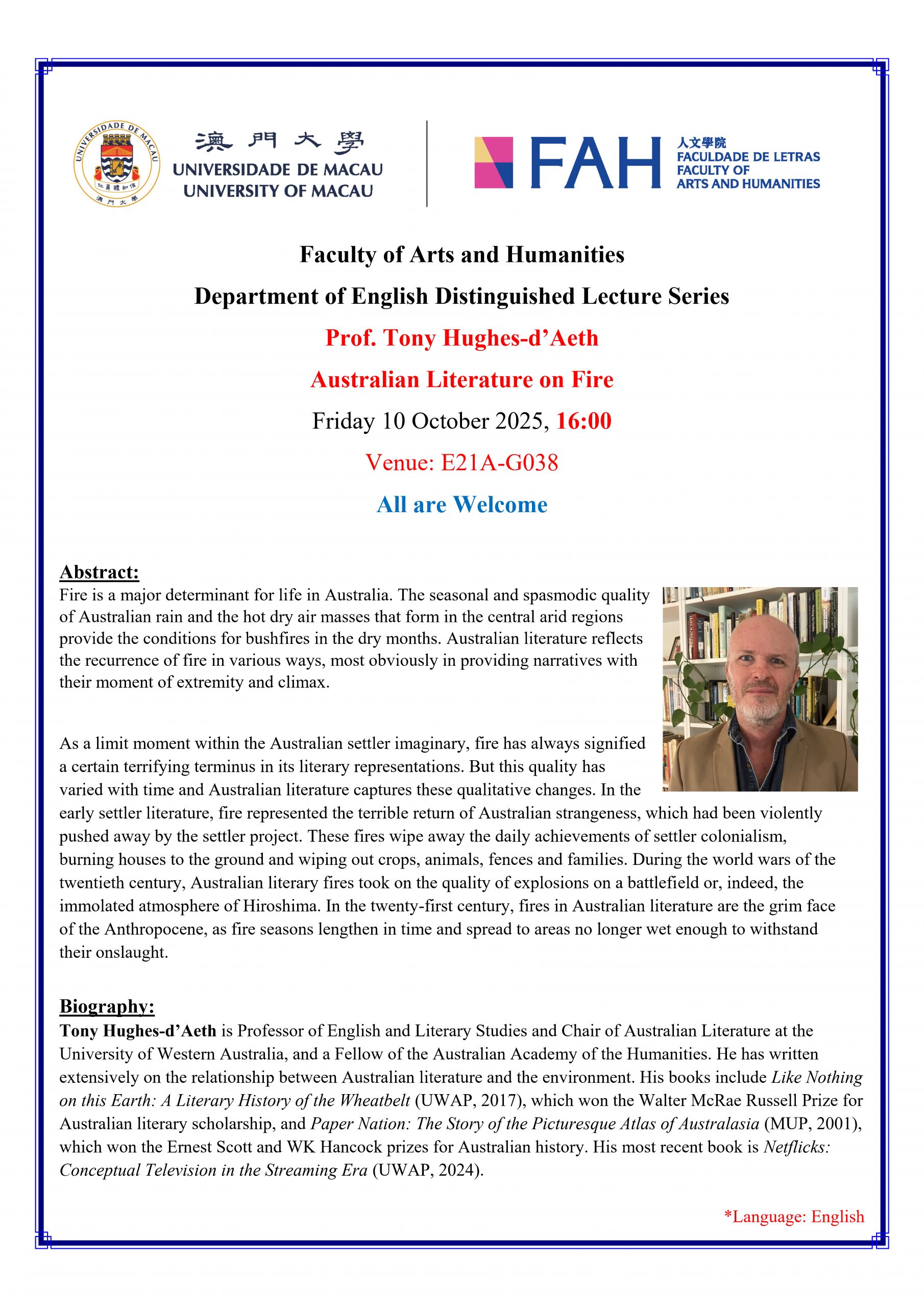

FAH-DENG Guest Lecture: “Australian Literature on Fire”
2025-10-10 @ 4:00 pm ~ 5:00 pm
Abstract:
Fire is a major determinant for life in Australia. The seasonal and spasmodic quality of Australian rain and the hot dry air masses that form in the central arid regions provide the conditions for bushfires in the dry months. Australian literature reflects the recurrence of fire in various ways, most obviously in providing narratives with their moment of extremity and climax.
As a limit moment within the Australian settler imaginary, fire has always signified a certain terrifying terminus in its literary representations. But this quality has varied with time and Australian literature captures these qualitative changes. In the early settler literature, fire represented the terrible return of Australian strangeness, which had been violently pushed away by the settler project. These fires wipe away the daily achievements of settler colonialism, burning houses to the ground and wiping out crops, animals, fences and families. During the world wars of the twentieth century, Australian literary fires took on the quality of explosions on a battlefield or, indeed, the immolated atmosphere of Hiroshima. In the twenty-first century, fires in Australian literature are the grim face of the Anthropocene, as fire seasons lengthen in time and spread to areas no longer wet enough to withstand their onslaught.
Biography:
Tony Hughes-d’Aeth is Professor of English and Literary Studies and Chair of Australian Literature at the University of Western Australia, and a Fellow of the Australian Academy of the Humanities. He has written extensively on the relationship between Australian literature and the environment. His books include Like Nothing on this Earth: A Literary History of the Wheatbelt (UWAP, 2017), which won the Walter McRae Russell Prize for Australian literary scholarship, and Paper Nation: The Story of the Picturesque Atlas of Australasia (MUP, 2001), which won the Ernest Scott and WK Hancock prizes for Australian history. His most recent book is Netflicks: Conceptual Television in the Streaming Era (UWAP, 2024).

